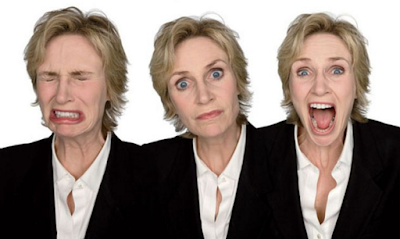 Every actor makes mistakes, but when you’re just starting out, you’re bound to make far. As an acting school, we’ve seen it all. And to be honest, many of the mistakes are avoidable.
Every actor makes mistakes, but when you’re just starting out, you’re bound to make far. As an acting school, we’ve seen it all. And to be honest, many of the mistakes are avoidable.
Forgetting the Crowd. Newer actors often think their space ends at the end of the stage and that no one in the audience can see them when they stop talking. Beginners talk directly to other actors forgetting that the audience needs to hear them too. Beginners often turn upstage leaving their backs to the audience. They break character whenever they’re not talking.
Solution: Think of the audience as your acting partner and part of the scene. You want them to see, hear, and engage with you. It doesn’t hurt to remember the three-quarters rule either. If you’re standing still, three-quarters of your body should be turned toward the audience. This way you can connect with the audience even if your head is facing upstage. Focus on connecting to the audience and you’ll always face the right direction.
Using Your Voice, But Forgetting Your Body. We’ve noticed that a lot of newer actors spend a great deal of time thinking about their lines and their blocking, but they neglect to include the physical world into their acting preparations. It’s important to remember that the first connection the audience makes with an actor is visual. And if what they see is boring, you’ve likely lost their attention.
Solution: It’s important for actors to use exercises that focus on using their body to communicate character. One example is to use entrances and exits. Think about the character’s body posture and movement. How would they enter and exit the room? What would the mood look like? Your audience should be able to get to know your character without hearing any of your lines, but just by seeing you move. Put as much effort into the physical nature of your character as you do learning your lines.
Typecasting Your Personality. It’s definitely ok to play a part that is familiar and comfortable, but it can happen a beginner actor can get stuck in a typecasting groove. There’s no difference between how the actor and their character moves, walks, and sounds. The character is stuck in a box, which is hardly fun to play.
Solution: Character analysis. Define the similarities and differences between you and your character. Highlight the differences and choose specific moments where you play them up. It may feel odd because it’s different than how you usually act, but that’s the idea. Playing outside your comfort zone will give you a challenge and make you a better actor.
There are no set rules for the actors success, but many have failed and succeeded and it’s only wise for us to learn from their journeys so that ours can be more smooth. For more information on acting classes, acting coaches and more, please contact us at the New York Acting School for Film and Television and we’ll get you going!

No comments:
Post a Comment